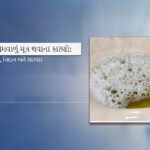Kidney stones are more than just an inconvenience—they can cause severe pain, discomfort, and lead to serious health issues if not addressed. While treatment is available, prevention is always better. Fortunately, the right dietary choices can significantly reduce the risk of developing kidney stones. In this blog, we’ll dive into how food choices can help prevent kidney stones and when it’s important to consult a Kidney Stone Specialist for personalised advice.
Table of Contents
What are Kidney Stones and Why Do They Form?
Kidney stones are hard mineral and salt deposits that form inside your kidneys. These stones develop when the concentration of certain substances—like calcium, oxalate, or uric acid—becomes too high in the urine. Dehydration, poor diet, and underlying health conditions can all contribute to the formation of kidney stones.
Understanding why they form is the first step in preventing them. By modifying your diet to reduce the substances that lead to stone formation, you can significantly lower your risk of kidney stones.
How Your Diet Can Help Prevent Kidney Stones
What you eat has a direct impact on the formation of kidney stones. There are specific foods for kidney stone prevention that you can incorporate into your diet. These foods work by either reducing the risk factors associated with stone formation or helping to flush out the substances that promote their development. Let’s explore some of the best dietary changes to help you prevent kidney stones.
-
Stay Hydrated
The most important step in preventing kidney stones is staying hydrated. Water helps dilute the substances in urine that form stones. Aim for at least 8-12 glasses of water daily to keep your kidneys functioning properly. If you live in a hot climate or engage in regular exercise, you may need even more. Some experts also suggest adding lemon to your water, as its citrate content may help prevent calcium-based kidney stones.
For individuals prone to recurring stones, a Kidney Stone Specialist may advise on optimal hydration strategies tailored to their lifestyle and health needs.
-
Increase Your Calcium Intake—The Right Way
You might think that avoiding calcium would help, but in reality, calcium from food sources can actually prevent kidney stones. Calcium binds with oxalate in the digestive tract before it reaches the kidneys, preventing it from forming stones. The key is to get calcium from food sources like milk, yoghurt, and cheese rather than from supplements, which could increase the risk of stone formation.
Incorporating calcium-rich foods for kidney stone prevention is essential for maintaining the right balance in your diet.
-
Limit High-Oxalate Foods
Since the majority of kidney stones are made from calcium oxalate, it makes sense to limit high-oxalate foods in your diet. Common culprits include:
Spinach
Rhubarb
Beets
Nuts
Chocolate
You don’t need to eliminate these foods entirely, but it’s important to eat them in moderation, especially if you’re prone to kidney stones. Pairing high-oxalate foods with calcium-rich foods can help reduce the risk.
-
Reduce Sodium Intake
Excessive salt intake can increase the amount of calcium in your urine, which promotes the formation of kidney stones. Reducing your sodium intake not only helps prevent stones but also improves overall heart health. Aim to keep your daily sodium intake below 2,300 mg and avoid processed, salty foods. Fresh vegetables, lean meats, and whole grains are much better options for your kidney stone diet.
-
Choose Plant-Based Proteins Over Animal Proteins
Animal proteins like red meat, poultry, and eggs can increase your risk of kidney stones by boosting uric acid levels. A diet high in animal protein may also reduce urinary citrate levels, which is a chemical that helps prevent stone formation. Instead, consider adding more plant-based proteins like lentils, beans, and tofu to your kidney stone diet. These foods are rich in protein and fiber, but lower in compounds that contribute to stone formation.
-
Add Citrus Fruits to Your Diet
Citrus fruits such as lemons, limes, and oranges contain natural citrate, which helps prevent the formation of kidney stones. You can easily incorporate these fruits into your daily routine by drinking lemon water or snacking on oranges. Increasing your intake of citrate-rich foods for kidney stone prevention is a delicious way to protect your kidney health.
-
Cut Back on Sugary Beverages
Sugary drinks, especially those containing high fructose corn syrup, can increase your risk of developing kidney stones. These beverages can raise oxalate, calcium, and uric acid levels in the urine, making it more likely that stones will form. Instead of sugary sodas and energy drinks, opt for water, herbal teas, or naturally flavored sparkling water to stay hydrated without the added risk.
Additional Tips for Kidney Stone Prevention
Along with diet, there are other steps you can take to reduce the risk of kidney stones:
Monitor your weight: Obesity is a known risk factor for kidney stones.
Exercise regularly: Regular physical activity helps maintain a healthy weight and reduces your risk of stone formation.
Avoid crash diets: Rapid weight loss can change the composition of your urine, increasing your likelihood of developing kidney stones.
When to See a Kidney Stone Specialist
While dietary changes can significantly reduce your risk, some people are more prone to kidney stones due to genetics or underlying medical conditions. If you’ve experienced recurrent stones or have a family history of kidney stones, it’s wise to consult a Kidney Stone Specialist. A specialist can evaluate your specific risk factors, perform diagnostic tests, and offer a personalized kidney stone diet tailored to your needs. They may also recommend medications or other treatments to prevent future stones from forming.
A Kidney Stone Specialist can provide the guidance you need to manage your diet effectively and ensure long-term kidney health.
Conclusion
Kidney stones are painful, but often preventable with the right dietary and lifestyle changes. By staying hydrated, balancing calcium and oxalate intake, reducing sodium, and adding plant-based proteins and citrus fruits to your diet, you can greatly lower your risk. If you’re concerned about your risk for kidney stones, don’t hesitate to seek the advice of a Kidney Stone Specialist like Dr. Dushyant Pawar, who can guide you toward the best preventive measures. After all, making a few changes to your diet today can help you avoid the pain and discomfort of kidney stones tomorrow. Stay mindful of your choices, and take control of your kidney health with a well-planned kidney stone diet.





